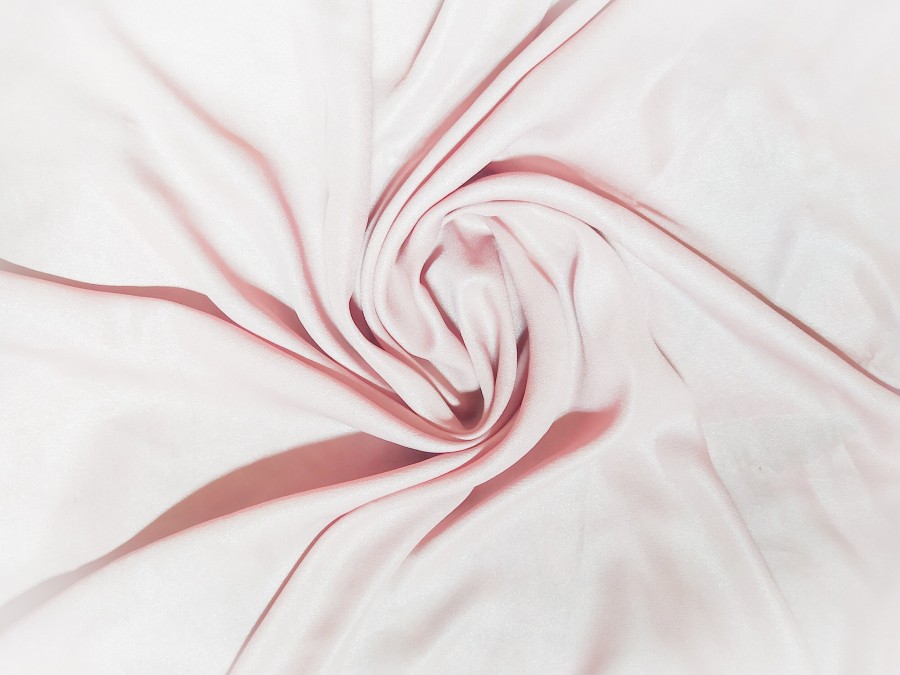
Lyocell Fabric, also known as Tencel, is a type of regenerated cellulosic fiber. It is made from wood pulp through a solvent spinning process where cellulose is dissolved and spun into fibers. The cellulose is derived from eucalyptus or pine trees that are farmed through sustainable forestry practices.
Lyocell Production Process
The lyocell production process starts with dissolving pulpwood chips in an amine oxide solvent. This creates a homogeneous cellulose solution which is then forced through a spinneret into a coagulation bath where insoluble fibers are formed. The resulting fibers are strong, soft and highly absorbent. Another unique aspect is that the amine oxide solvent is recycled during manufacturing, minimizing environmental impact. Over 99% of the solvent is recovered and reused.
Material Properties and Uses
Lyocell fibers have a soft, silky handfeel similar to cotton or viscose but are stronger. They are highly breathable and absorbent while maintaining shape and drape well. These properties make lyocell a popular material for clothing like t-shirts, underwear, dresses and linens. It is also used to make nonwoven fabrics for consumer wipes, feminine hygiene products and other personal care uses.
Due to its natural cellulose content, Lyocell Fabric biodegrades much faster than synthetic fibers if discarded. It also takes dye beautifully for vibrant colors. All of these attributes have made lyocell a premier eco-fabric choice for the ethical fashion movement.
Environmental and Social Benefits
Beyond the reuse of solvents during production, lyocell offers many sustainability advantages over other man-made cellulosics and synthetics:
– Sustainable forestry practices ensure tree farms are responsibly managed for ongoing fiber sources.
– A closed-loop production system minimizes freshwater usage, requiring about 10 times less than cotton.
– Chemicals used are largely non-toxic and the process emits fewer pollutants than viscose rayon.
– Biodegradability prevents fibers from accumulating as microplastics in the environment over time.
– Supplier farms provide safe working conditions and higher wages for communities.
With these eco-friendly attributes, lyocell has earned certifications like the EU Ecolabel and is recommended by groups like PETA as an animal-friendly fabric choice. Its green profile is a big reason for growing popularity among ethically-minded consumers and brands.
New Developments and the Future of Lyocell Fabric
Research continues toward optimizing the lyocell process and developing new product applications. Some areas of innovation include:
– Blending lyocell with other natural or recycled fibers expands material versatility. Blends with modal, cotton and Tencel Modal enrich texture and performance.
– New spinning methods create filaments fine enough for airlaid nonwovens used in wipes, masks and medical textiles.
– Advances in solvent recovery now achieve 99.5% recycling for an even greener footprint.
– Experimentation with agricultural waste fibers as an alternative or supplement to wood sources is ongoing.
As sustainability concerns rise globally, the natural attributes and production efficiency of lyocell position it well for ongoing market growth. Its expanded uses promise to displace less eco-friendly synthetic materials across many industries in the future. Overall, Lyocell Fabric stands out as a top choice for responsible fabric sourcing.
Get more insights on Lyocell Fabric
About Author:
Alice Mutum is a seasoned senior content editor at Coherent Market Insights, leveraging extensive expertise gained from her previous role as a content writer. With seven years in content development, Alice masterfully employs SEO best practices and cutting-edge digital marketing strategies to craft high-ranking, impactful content. As an editor, she meticulously ensures flawless grammar and punctuation, precise data accuracy, and perfect alignment with audience needs in every research report. Alice’s dedication to excellence and her strategic approach to content make her an invaluable asset in the world of market insights.
(LinkedIn: www.linkedin.com/in/alice-mutum-3b247b137 )